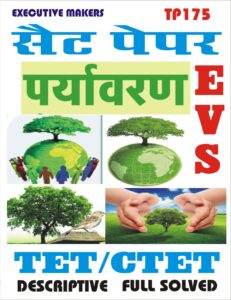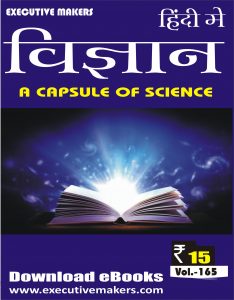Blog, ENGLISH, IN ENGLISH, PEDAGOGY
40 Amazing Terms of English Pedagogy
40 Amazing Terms of English Pedagogy
40 IMPORTANT TERMS FOR ENGLISH PEDAGOGY
SPECIAL FOR TEACHING EXAMS
CTET, TET, SUPER TET, KVPS
Soliloquy:
This is a monologue in a play. The character is either alone on the stage or with other characters. Emotions and innermost thoughts of the character are revealed in soliloquy.
Example: Macbeth’s soliloquy in Shakespeare’s play…..
Is this a dagger which I see before me,
The handle toward my hand? Come, let me clutch thee.
Denouement:
This comes from the French word ‘denoue’ meaning to ‘untie’. It is also referred to as Resolution. It is the final outcome in a play, an explanation that reveals all the secrets.
40 Amazing Terms of English Pedagogy
Mime:
This is a form of theatre performance, in which action and character are suggested , using gesture, movement and facial expressions without words or sounds. The term comes from the Greek word ‘mimos’ meaning ‘imitator’.
Pantomime:
This is a dramatic form of acting, in which an actor silently interprets the entertaining scenes using gestures, emotions and attitudes.
Skit:
This is a short, humorous act that is improvised. Skits are usually a one scene story. Skits teach us about the importance of theatre. The most popular formats for skits are musical, comedies or tragedies.
Opera:
This is a dramatic work set to music, having no dialogue for singers and instrumentalists. Operas have themes which provide dramatic elements such as conflict, love triangles, murder, jealousy and political strife. They are performed in theatres or an open air stages.
40 Amazing Terms of English Pedagogy
Melodrama:
This is a play in which the situations are exaggerated and the language emphasizes actions and effects. It shows a struggle between good and evil with music accompanying the action scenes. Happy endings signal the triumph og good or evil.
Satire:
This means sarcasm, irony and ridicule to expose or attack folly or pretension in society. The use of satire refers to the practice of making fun of a human weakness. Satire might be humorous but its purpose is not to only entertain and amuse but to derive a reaction of contempt from the reader.
Burlesque:
This is a form of comedy characterized by ridiculous exaggeration. It is derived from the Italian word ‘burla’ and means a joke or to ridicule.
40 Amazing Terms of English Pedagogy
Parody:
This is associated to a particular work. Parody works by keeping a targeted style constant while lowering the subject. Burlesque works by keeping a targeted subject constant while lowering the style.
Caricature:
This is writing that explains certain individual qualities of a person and produces ridiculous effect. Caricature is more frequently associated with drawing than writing.
Hyperbole:
This is derived from the Greek word. It is a literary technique in which a certain piece of information or feeling is exaggerated intentionally.
Metonymy:
This is a word or phrase that is used for another word. It is the practice of substituting the main word with a word that is closely linked to it. Metonymy allows a reader to recognize similarities or common features among terms. A name transfer takes place to demonstrate how two things are associated in some way.
Example: ‘crown’ for the power of a king or ‘dish’ to refer to an entire plate of food.
40 Amazing Terms of English Pedagogy
Irony:
This refers to playing around with words such that the meaning implied by a sentence or word is actually different from the literal meaning.
Pun:
This is a very popular literary device, defined as a play on the sound of words to achieve a humourous effect.
Malapropism:
This refers to the practice of misusing words by substituting words with similar sounding words that have different often unconnected meanings.
Alliteration:
This is a literary device where words are used in quick succession and begin with letters belonging to the same sound group.
Example: Peter Piper picked a peck of pickled peppers.
40 Amazing Terms of English Pedagogy
Assonance:
This is repeating vowel sounds in a line of poetry.
Consonance:
This is repeating consonant sounds in a group of words.
Simile:
This is a comparison between two unlike things using like or as.
Example: My love is like a red, red rose.
40 Amazing Terms of English Pedagogy
Metaphor:
This is a comparison between two unlike things without using like or as.
Example: My love is a red, red rose.
Imagery:
This is a language that evokes sensory images.
Example: A host, of golden daffodils
Beside the lake, beneath the trees
Fluttering and dancing in the breeze.
Apostrophe:
This is addressing someone absent or dead or something nonhuman.
Example: Busy old fool, unruly sun
Why dost thou thus,
Through windows, and through curtains call on us?
Here the apostrophe is addressing the sun.
40 Amazing Terms of English Pedagogy
Personification:
This is assigning the qualities of a person to something that is not human or is not even alive.
Analogy:
This is a comparison in which an idea or a thing is compared to another thing that is quite different from it.It aims at explaining that idea or thing by comparing it to something that is familiar.
Example:
The white mares of the moon rush along the sky
Beating their golden hoofs upon the glass Heavens.
Here the analogy is between the clouds and mares. It compares the movement of the white clouds in the sky at night with that of the white mares on the ground.
Onomatopoeia:
This is when words are used to convey a certain sound such as buzz, crack,sizzle etc.
Example:
The moan of doves in immemorial elms,
And murmuring of innumerable bees.
40 Amazing Terms of English Pedagogy
Pathetic:
This is attributing human qualities and emotions to inanimate objects of nature.
Synecdoche:
This indicates a part of something to refer to the whole or a whole to represent a part.
Example:
The western wave was all a flame,
The day was well was nigh done!
Here, the western wave is a synecdoche. It refers to the sea by one of its part i.e. wave.
Couplet:
This is two successive rhyming lines that share a similar idea and form a complete thought.
Example:
Good nature and good sense must ever join,
To err is human, to forgive, divine.
40 Amazing Terms of English Pedagogy
Ballad:
This is a narrative poem, written in four line stanzas, characterized by swift action and narrated in a direct style.
Example:
Day after day, day after day
We stuck nor breathe, nor motion
As idle as a painted ship
Upon a painted ocean.
Elegy:
This is a poem that laments or mourns the death of the individual.
Example:
But O heart! Heart! Heart!
O the bleeding drops of red,
Where on the deck my Captain lies,
Fallen cold and dead.
40 Amazing Terms of English Pedagogy
Ode:
This is a long poem in stanzas, written about someone or something the poet admires or loves.
Sonnet:
This is a fourteen line poem, following a rhyming scheme.
Folklore:
This includes Fairy Tales, Myths, Legends, Fables. All folklore began as oral tradition, unwritten stories that were passed down from one generation to the next.
Linguistics:
This is concerned with the nature of language and communication. It deals both with the study of particular language and the search for general properties common to all languages.
40 Amazing Terms of English Pedagogy
Dialectology:
This is the branch of linguistics concerned with the study of dialects and investigation of regional variation in language.
Ethnolinguistics:
This is the investigation of the relationship between a people’s language and culture. It is concerned with the relations between linguistic and cultural behaviour.
Morphology:
This is the study of word formation and inflection. The term morphology is Greek and is a made up of morph – meaning ‘shape’ and logy- the study of something. It is the study of the internal structure of words.
Philology:
This is the branch of knowledge that deals with the structure, historical development and relationships of a language.
40 Amazing Terms of English Pedagogy
Phonology:
This is the classification of the sounds within the system of a particular language.
Semantics:
This is the study of word and sentence meaning.
40 Amazing Terms of English Pedagogy
EXERCISE
40 Amazing Terms of English Pedagogy
Point out the figures of speech in the following.
- The sky neighbouring Himalayas.
- His words are as sweet as honey.
- We heard the lapping of water on the stone.
- O Liberty ! What crimes are committed in thy name.
- Life is but a walking shadow.
- His honour rooted in dishonor stood.
- Dew drops are the gems of morning.
- I will bring the stars for you.
- He lived a life of laborious idleness.
- She raised a cry that would raise the dead from the grave.
- Danger will pass away like a troubled night.
- He is an innocent criminal.
- This place is a paradise to me.
- The lake was clear as crystal.
- Tarry a while, O death, I cannot die.
40 Amazing Terms of English Pedagogy
- Life is a bed of roses.
- We felt sweet pain at the time of parting.
- I gave him a thousand thanks.
- O Grave ! Where is thy victory ?
- All the world is a stage.
- Life is bitter sweet.
- Childhood is like a swiftly passing
- He is as busy as a bee.
- Death lays his icy hands on kings.
- O Death ! Where is thy sting ?
- The sea waves rose mountain high.
- I heard the tinkling of the bells.
- She is as cunning as a fox.
- He was the wisest fool of our village.
- I wandered lonely as a cloud.
- Truth sits upon the lips of a dying man.
- Ranjit Singh was the lion of the
- Anxiety is sitting on his face.
- Children are living poems.
- He was as brave as a lion.
- The boy was regularly irregular.
- He has the strength of a thousand.
40 Amazing Terms of English Pedagogy
- How sweet the moon light sleeps.
- O Earth ! What changes hast though seen.
- Guns boomed in the battle field.
- He can swim like a duck.
- The Taj is a dream in marble.
- The buzzing of innumerable bees.
- Cowardly brave ! Yes that describes him truly.
- The Assyrian came down like a wolf on the field.
- Kashmir is paradise on earth.
- O my country ! What changes hast thou seen.
- The river of life goes on.
- The tea is icy cold.
- Opportunity knocks at the door but once.
- We felt a pleasing pain at the time of parting.
- We heard the hissing of snakes.
- His heaps of gold made mountains look small.
- The sun of Rome is set for ever.
- There was sea of human heads on the
40 Amazing Terms of English Pedagogy
- Sardar Patel was a pillar of strength.
- Death lays his icy hands on kings.
- This is an open secret.
- Silence sealed his lips.
- He is a silent orator.
- Life ! I know not what thou art.
- Even the sky shed tears at Gandhiji’s death.
- A fleet of planes whirred above our heads.
- Man is the cream of creation.
- I beg a thousand pardons.
- My country ! with all thy faults I love thee.
- Experience is the best teacher.
- They melt like mist, the solid lands.
- It is a lame excuse.
40 Amazing Terms of English Pedagogy
- Ding-Dong goes the bell.
- O father in Heaven, help the children when they call.
- His statement was falsely true.
- His house looked like a lovely garden.
- The sun with his great eye. Sees not so much as I.
- Joy and sorrow are mingled in our life.
- Columbus faced an angry ocean.
- His words leapt like a leaping sword.
- Sarojini Naidu was the Nightingale of India.
- Break, break, break. On thy cold grey stones , O sea !
- There honour comes a pilgrim gray. To bless the turf that wraps their clay.
- It cracked and growled and roared howled.
- O World ! O Life ! O Time !
On whose last steps I climb.
- Glorious Rome has lost her crown.
- And he rose with the dust all over him.
Like the golden image of a God.
40 Amazing Terms of English Pedagogy
- He sneezed and clouds would break.
- The glorious lamp of heaven, the sun.
- That in black ink my love may still shine bright.
- Hitler’s mad policy let loose the dogs of war.
- The Himalayas wear a frowning look which threatens a storm.
- The sky shrunk upward with unusual dread. And trembling Jamuna dived beneath its bed.
- O Wild West Wind, breath of Autumn’s being !
- In the sunset of his days Sir Winston Churchill was a pathetic figure.
- The chair collapsed under the weight of the mountainous philosopher.
- There is a dagger in thy words.
- He saw within the moonlight in his room, An angel like a lily in bloom.
- Rome, thou hast seen much better days !
- And his breath was like a furnace throwing flames.
- And his eyes spouted tears of blood.
- He stood as a rock.
- Mohan is the Hercules of his class.
40 Amazing Terms of English Pedagogy
ANSWERS
40 Amazing Terms of English Pedagogy
(1) Personification (2) Simile
(3) Onomatopoeia (4) Apostrophe
(5) Personification (6) Oxymoron
(7) Metaphor (8) Hyperbole
(9) Oxymoron (10) Hyperbole
(11) Simile (12) Oxymoron
(13) Metaphor (14) Simile
(15) Apostrophe (16) Metaphor
(17) Oxymoron (18) Hyperbole
(19) Apostrophe (20) Metaphor
(21) Oxymoron (22) Simile
(23) Simile (24) Personification
(25) Apostrophe (26) Hyperbole
(27) Onomatopoeia (28) Simile
(29) Oxymoron (30) Simile
(31) Personification (32) Metaphor
(33) Personification (34) Metaphor
(35) Simile (36) Oxymoron
(37) Hyperbole (38) Personification
(39) Apostrophe (40) Hyperbole
(41) Simile (42) Metaphor
(43) Onomatopoeia (44) Apostrophe
(45) Simile (46) Metaphor
(47) Apostrophe (48) Metaphor
(49) Hyperbole (50) Personification
(51) Oxymoron (52) Onomatopoeia
(53) Hyperbole (54) Metaphor
(55) Hyperbole (56) Metaphor
(57) Personification (58) Oxymoron
(59) Personification (60) Oxymoron
(61) Apostrophe (62) Hyperbole
(63) Onomatopoeia (64) Metaphor
(65) Hyperbole (66) Apostrophe
(67) Personification (68) Simile
(69) Personification (70) Onomatopoeia
(71) Apostrophe (72) Oxymoron
(73) Simile (74) Personification
(75) Oxymoron (76) Personification
(77) Simile (78) Metaphor
(79) Apostrophe (80) Personification
(81) Onomatopoeia (82) Apostrophe
(83) Personification (84) Simile
(85) Hyperbole (86) Metaphor
(87) Oxymoron (88) Metaphor
(89) Personification (90) Personification
(91) Apostrophe (92) Metaphor
(93) Hyperbole (94) Metaphor
(95) Simile (96) Personification
(97) Simile (98) Metaphor
(99) Simile (100) Metaphor
40 Amazing Terms of English Pedagogy
Download Books, Notes, Test Papers, Sample Papers,
Speed Test Papers in Hindi as well as in English.
VISIT US
Thousands of customers are full satisfied.
Target No-1 Classes
(a unit of )
Executive Makers Pvt. Ltd.
40 Amazing Terms of English Pedagogy
V192 Amazing Social Science Notes
V189 Amazing Class 6th Biology Notes Our Environment NCERT
V169 GENERAL STUDIES ONE LINER
40 Amazing Terms of English Pedagogy
40 Amazing Terms of English Pedagogy





